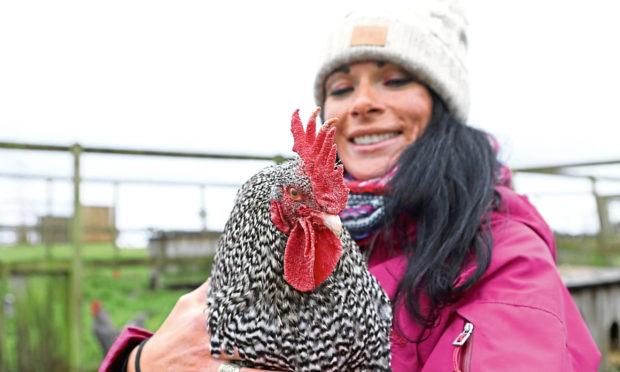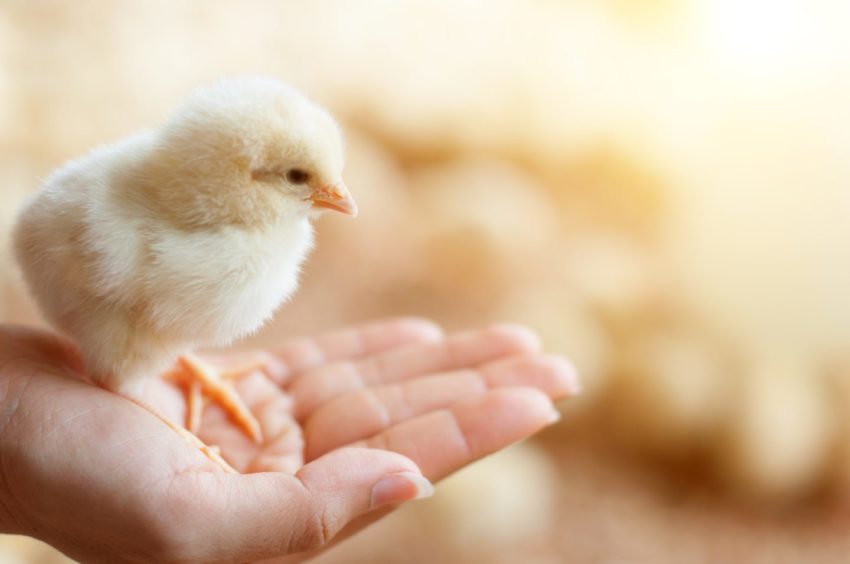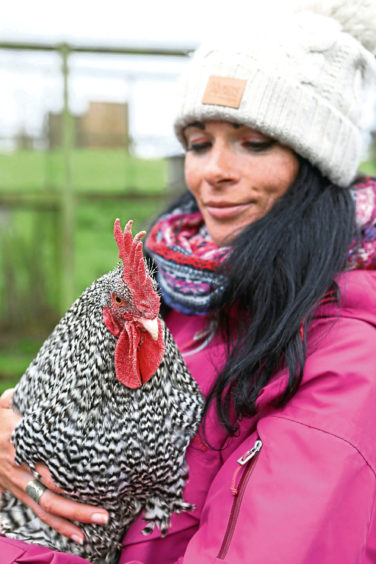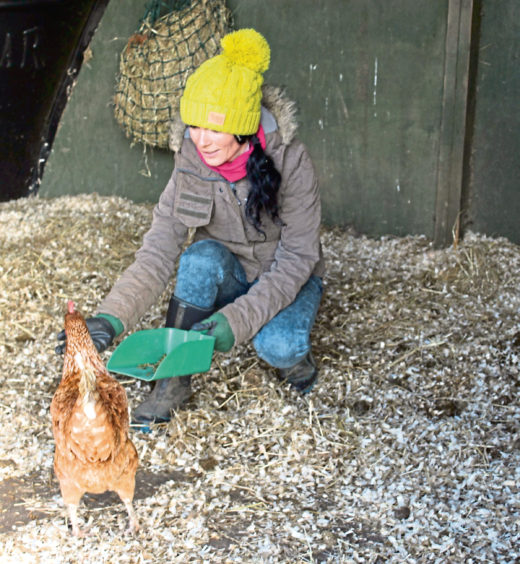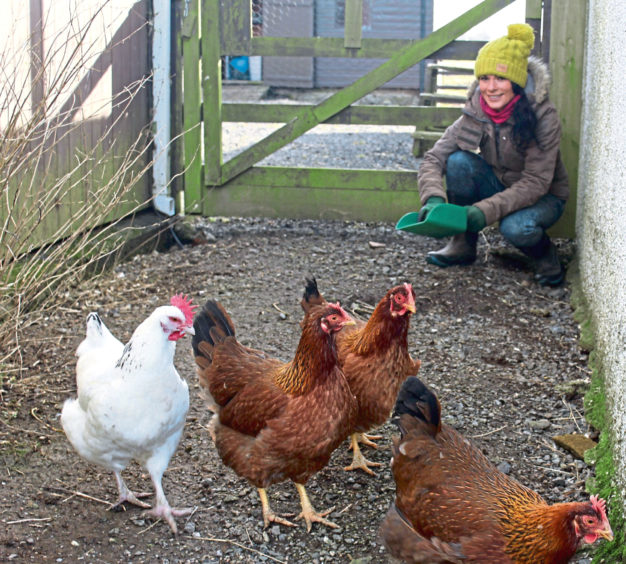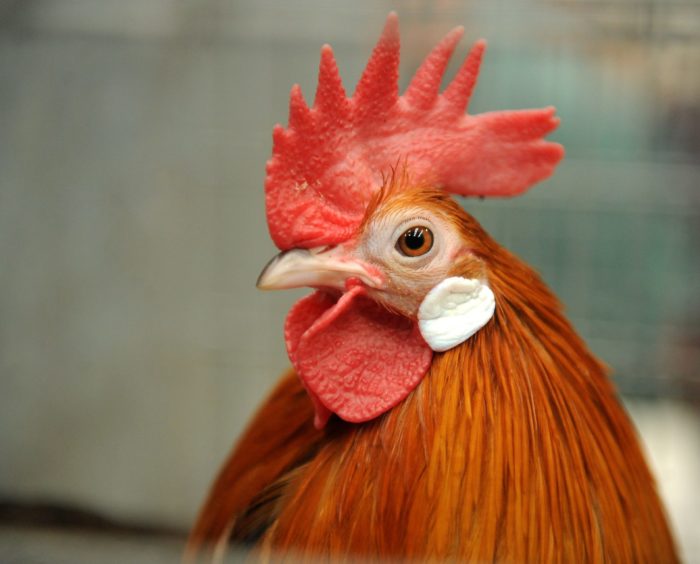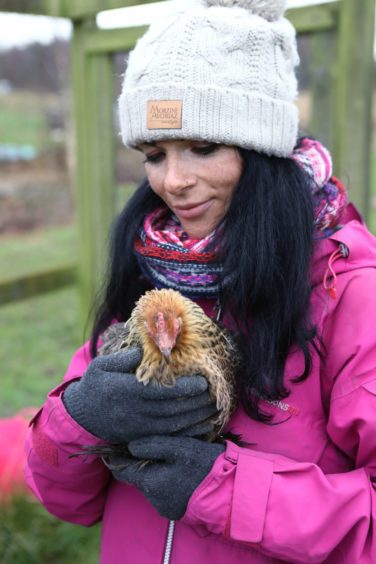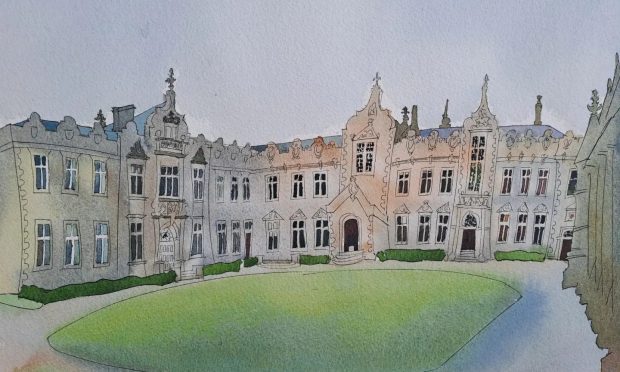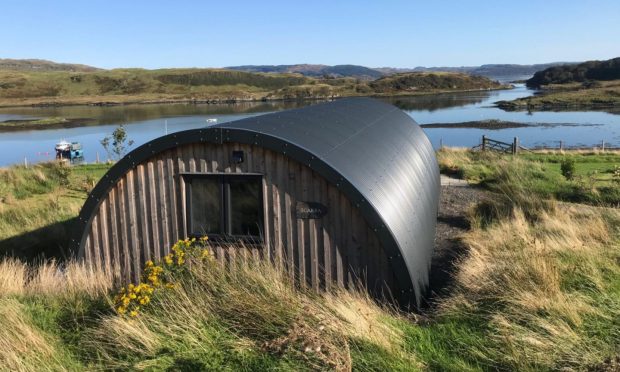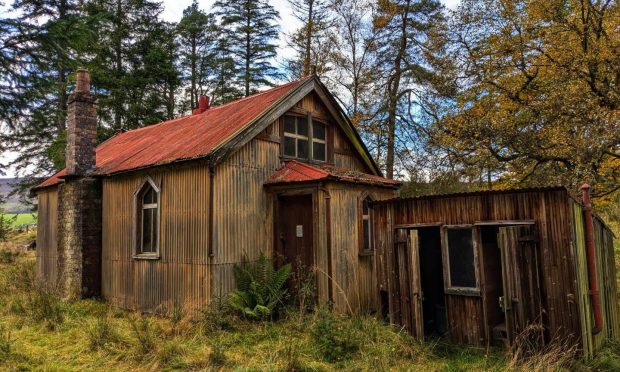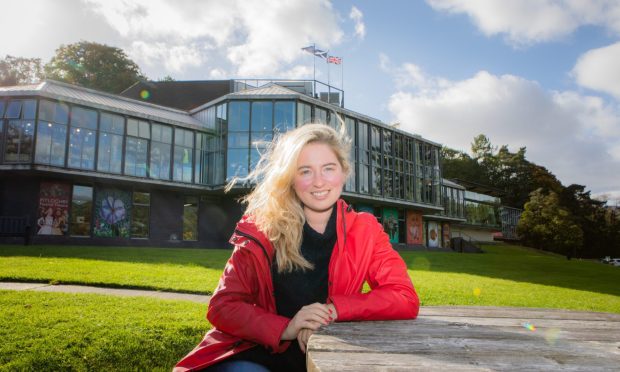Lockdown has encouraged increasing numbers of people to keep hens as pets. Gayle considers adopting some feathered friends.
A trip to the Winter Gardens in Aberdeen’s Duthie Park ranked high on my list of exciting days out as a wee girl.
With any luck, there’d be a huddle of fluffy yellow chicks to coo and gape at – and maybe even to stroke.
While enamoured by these cute cheeping creatures, I wasn’t too fussed about their parents.
I regarded them from a distance, vaguely aware of their majesty but slightly fearful of their beaks and claws.
The concept of being woken at dawn by a crowing cockerel was something I found vaguely romantic – I adored the nursery rhyme Cock A Doodle Do and the Kellogg’s Cornflakes mascot – but when faced with an actual cockerel serenading at sunrise, it was a case of cock-a-doodle-don’t.
Three months spent in a hostel in the Cook Islands in 2010 was when the reality hit.
I was rudely awoken every day at 4am by a cacophony of cockerels crowing outside my window.
Sleep was impossible and I stumbled around, bleary-eyed and exhausted, until I sourced a pair of industrial-strength earplugs.
A more recent cockerel story didn’t do much to endear me to the birds, either.
A friend revealed her strutting cockerel, named, I kid you not, Harry Hitler, had attacked her husband with his razor-sharp spurs.
Blood poured down his shins as he fled from the aggressive beast.
Last year, however, my negative perception of cockerels changed when I visited Murton Farm near Forfar, where I was able to meet a few chilled-out fellows and cuddle some of their lady friends.
And last week, a friend invited me up to meet her impressive collection of hens, including Shaver Browns, Light Sussex, Welsummer and Vorwerk.
I was delighted and honoured when gorgeous Esmeralda took meal worms right out of my hand! I hadn’t realised chickens could be so endearing.
Certainly, the popularity of hens as pets has soared since lockdown started and the British Hen Welfare Trust has been inundated with reservations.
The trust took reservations for 2,000 hens in March 2020 compared with 635 the previous year.
“We had to filter out those who simply wanted hens for their eggs or to keep bored children entertained,” the trust’s founder Jane Howorth tells me, “but the response from people genuinely wanting to take up a new hobby was enormous.”
The trust collects hens when they’re considered no longer commercially viable (they don’t pop out enough eggs) and has helped more than 810,000 hens – around 60,000 annually – since it was founded in 2005.
“They’re usually around 18 months old and while they may not produce a daily egg, they’ll often continue to lay well given good food and lashings of TLC,” says Jane.
With several rehoming sites across Scotland, the trust, which had to press pause on the process during lockdown, hopes it can start up again later this month.
“Our 1,000-plus volunteers are keen to get hens out of farms and into family homes and we have more than 18,000 booked on waiting lists,” says Jane.
Sadly, there are loads of unwanted cockerels – often 50% of chicks, or sometimes more, can be boys.
“What people don’t realise is that if you hatch six eggs, you may have six cockerels or likely at least three, and cockerels generally don’t get on with each other,” says Jane.
“Hence there are always too many cockerels – some of them real handsome chaps – looking for too few homes.”
In a bid to combat the issue, the charity has set up a dedicated cockerel rehoming page.
So what’s the most rewarding thing about keeping hens, or, indeed cockerels?
Jane says they are “fabulous fun, endearing, precocious and stealthy” and best of all, “life enriching”.
“That’s the most commonly used phrase about our gorgeous hens,” she says.
“And they’re the only pet that’ll provide a fresh and tasty egg for breakfast or any other meal, cake or bake.”
Any downsides? Like all pets, keeping hens is a tie – you need to be committed to their daily care, provide secure accommodation and be prepared to take them to the vet if they become poorly.
While extremely adaptable, the more outdoor space hens are given, the happier they’ll be.
Tempted to adopt? The process is simple. You reserve hens online (the trust speaks to those new to hen-keeping and offers advice) and when volunteers collect birds from farms, hens have homes waiting for them.
“The entire process is over in a day, and while it’s a bit bewildering for the hens, they soon settle into their new homes,” says Jane.
“It’s magical to watch the transformation from timid, tatty, thread-bare hen to bold and beautiful bird within a matter of weeks.
“To walk to the bottom of the garden, spend time with your hens, hunt for, collect and enjoy their delicious eggs is sublime.”
It’s fair to say I’m tempted to adopt a hen or two, bearing in mind it’s a big commitment.
But cockerels? Sorry lads. Your incessant Cook Islands crowing has scarred me for life!
- For details on hen and cockerel adoption, go to bhwt.org.uk
